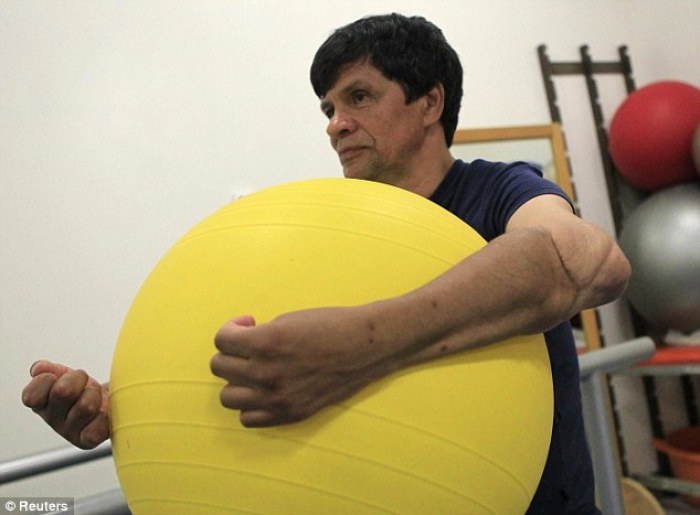Mexican Man Gets New Grip on Life With First Successful Double Arm Transplant in Latin America (Watch)

Gabriel Granados, 53, suffered a massive electric shock while working at a construction site in 2011 that left him so badly burned doctors were forced to cut off both his hands below the elbow. Thanks to the marvel of modern medicine, however, Granados is sporting a new pair of arms and hands he got last May.
"This is wonderful that after being without hands for some time, all of a sudden I see new hands," said Granados, an agent in the financial unit of Mexico City's prosecutors' office in a MailOnline report.
At the time of the accident in January 2011, Granados was instructing a group of construction workers who were building a fence and he had no idea what danger was waiting for him in the area.
"I was giving directions to the master masons to put a fence that was located precisely in an area where there were cables," he said.
"When the accident happened, I was carrying a piece of rod that caused the electric shock that burned arms, arteries, nerves, vessels and bone," he added.
However in May 2012, Granados received his new forearms, donated by the family of 34-year-old shooting victim, and since then, his body has been responding well to the new additions. The operation to attach the new arms and hands took 17-hour and required a team of 20 medics, including five plastic surgeons, five nurses and three anesthetists.
"He has recovered about 70 percent (of movement) and is very independent. When he left the hospital he was completely dependent, daily activities such as getting dressed, having a bath, getting around required the assistance of family and therapy services. So, we started with a very passive treatment and currently the treatment is very active and he has recovered a lot," head of rehabilitation at Mexico City's Nutrition Hospital, Rocio Cervantes, noted in a GNC Global News report.
Although the possibility exists that Granados' body could start rejecting the arms at any time because the arms came from someone else, immune suppression treatment is helping him to manage that threat.
"Rejection will always exist, the probability of rejection will always exist because it is something tissue for him and his organism will always fight, try to reject it. Therefore, he needs to take immune suppression, which control, maintain a good state of health," said plastic surgery specialist Martin Iglesias.
He explained, however, that these transplant procedures are limited by the number of available organ donors and encouraged more donations in Mexico.
"There's a need to promote organ donations because many require an organ and they (hospitals) don't have them because we unfortunately don't have the culture of organ donation. I thought the same but today I would. This is the proof that it works," said Iglesias.




























